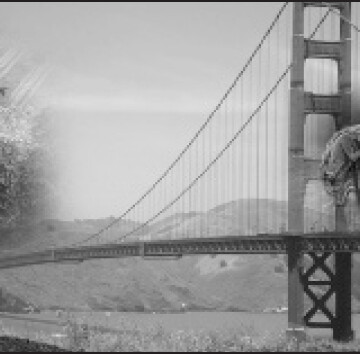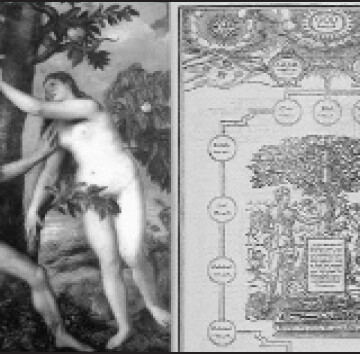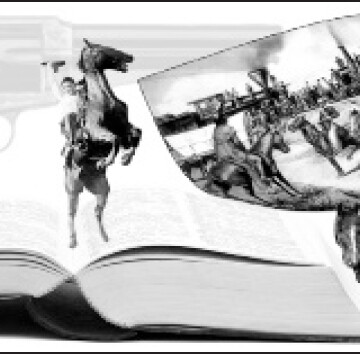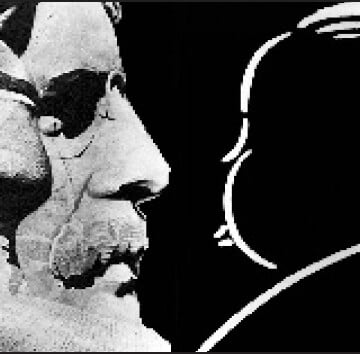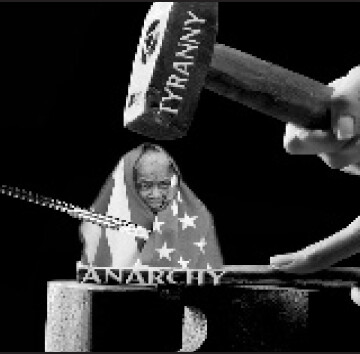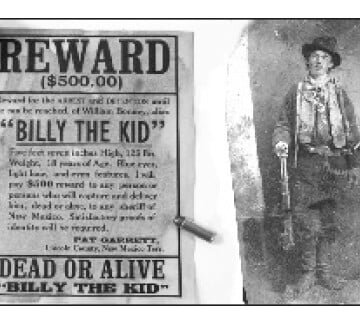For the last four years, change has been in the air in Spain, following the election of Prime Minister José Luis Rodríguez Zapatero, leader of the Spanish Socialist Workers’ Party. And thanks to his reelection in March of this year, we can look forward to more of the same. There have been abrupt changes to...
Category: View
The Promise and Peril of Identity Politics: Hope in a Dismal Season
George W. Bush is a stunningly and deservedly unpopular president. His approval ratings rival Nixon’s after Watergate, and the Republicans largely avoided any mention of him at their convention in St. Paul, a convention from which Bush was conspicuously absent. Under his leadership, we have become embroiled in a war that has cost thousands of...
Paradise Lost
“Whatever starts in California unfortunately has an inclination to spread.” —President Jimmy Carter On a Sunday afternoon late in June, Tony Bologna was driving home with his sons, Michael and Matthew, from a family barbecue. In San Francisco’s Excelsior district Bologna got stuck in an intersection, temporarily blocking a car from making a left-hand turn. ...
The Burden of Racial Guilt: A New Declaration of Independence
“We hold these truths to be self-evident, that all men are created equal, that they are endowed by their Creator with certain inalienable Rights, that among these are Life, Liberty, and the pursuit of Happiness.” —The Unanimous Declaration of the Thirteen United States of America As I write I am sitting in Pitt County, North...
Pro-Choice Christians: Shattering Nature’s Glass Ceiling
After eight years of George W. Bush’s “culture of life,” which included well over 4,000 U.S. military deaths in Iraq and an estimated 1.25 million Iraqi deaths, abortion is back on the front burner, thanks to the presence of Sarah Palin on national television. Few were “energized” about John McCain before she entered stage right...
Boogaloo Down Broadway: The Charade of Liberal Change
Here it is 2008, and everything else is old news. The provisional and absentee ballots, recounts, scores, and statistics of 2000-2007 are all in the history books, along with Afghan and Iraqi elections and constitutions, insurgencies, hurricanes, disgraced mayors and governors, and Supreme Court, lobbying, earmark, wiretapping, and energy and cartoon ruckuses. Since Barack Obama...
The Revelations of the Obama Plan: Change We Can’t Afford
The Democratic nominee for president has finally offered the details of his campaign theme—that he will radically change America if elected—by posting on his website “The Blueprint for Change: Barack Obama’s Plan for America.” Senator Obama’s call for “change” has mesmerized America’s youth and raised unprecedented grassroots donations. Every American longing for real change that...
The Obama Presidency: The Triumph of (Lots of) Experience Over (a Little) Hope?
It has been an awful two decades. Say what you will about Ronald Reagan, he did not leave people feeling depressed, even hopeless. Then came four years of George H.W. Bush—an honorable man, but hardly an inspiration. And his tax and regulatory policies were largely indistinguishable from those of the Democrats. Then we endured eight...
Obama on Foreign Policy: A Mysterious Work in Progress
The central theme of Sen. Barack Obama’s campaign for the presidency has been his call for “change”—albeit often with few details about the nature of that change. There is certainly a pressing need for change in U.S. foreign policy. During the Cold War, Washington’s strategy led to security free-riding by allies and clients, caused the...
The Dean of Western Historians
It is usually difficult to choose only one author who is essential to the study of a particular subject. When it comes to the history of the frontier West, however, the choice is easy. Ray Allen Billington stands alone above all. He is the sine qua non of any course on frontier history. When reading...
Beginning With History
Any fool can write history, and many do. Please do not assume that I mean by this statement to vaunt the “expert” and slight the amateur. In writing history the amateur is sometimes gifted, and there is no more pestiferous fool than the smug, pretentious “expert” who thinks of his own mind as the repository...
David Hume: Historian
Intellectual historians commonly group Voltaire, Edward Gibbon, William Robertson, and David Hume as the four greatest 18th-century historians. If limited to only one of these authors, we would do well to begin with Hume. For one thing, Hume is the only thinker in history who has achieved world-class status as a philosopher and as an...
The American Dream
The presidential campaign that began the day after the previous one ended nearly four years ago seems increasingly like a dream. I suppose it is part of the American Dream—this belief that, of all the allures and temptations the world has to offer, the greatest is the presidency of the United States; the highest calling,...
Yankee, Go Home
Sixty years ago an incident lodged in my memory forever as it seems, as I walked with the beautiful redheaded young lady who paused to ask me a question. There above an old outbuilding—I hesitate to call it a barn—there was a weathervane appearing as the silhouette of a rooster. But this image was perforated...
Alfred Hitchcock’s Empty Suit
In 1939, a short, fat Englishman named Alfred Hitchcock arrived in Hollywood at the invitation of David Selznick. Impressed by Hitchcock’s work in British film, Selznick thought he would be perfect to direct Rebecca, starring Laurence Olivier and Joan Fontaine. Things did not go well. Selznick was among the most overbearing of Hollywood producers. He...
Videites
You may have riches and wealth untold; / Caskets of jewels and baskets of gold. But richer than I you will never be— / For I had a mother who read to me. —Strickland Gillilan Perhaps more than most I wax nostalgic for the 50’s, which was not a decade but an era that began...
The Burmese Tragedy
Even before being devastated by a killer cyclone on May 2, Burma was one of the world’s poorest countries. Renamed Myanmar by a military junta, Burma is also one of the most oppressed countries. In terms of brutality, cruelty, and venality, her government is in a league with North Korea. It comes as no surprise,...
Neo-McCainism: The Highest Stage of Neoconservatism?
It is difficult to imagine, but there was a time when pundits in Washington were tagging John McCain as the ultimate unneoconservative Republican figure whose nationalist yet pragmatic approach to foreign policy was being viewed with suspicion by your average global democratic crusader—not to mention the members of what Pat Buchanan described as Israel’s Amen...
A Case of Russophobia
John McCain does not like the Russians. Nearly 17 years after the collapse of the Soviet Union, with Soviet-style communism safely tossed into the dustbin of history, Senator McCain loves to scare us with the Russkie boogeyman. Take, for example, this excerpt from his “An Enduring Peace Built on Freedom,” published in the November/December 2007...
John McCain on Foreign Policy
Over the years, John McCain has acquired a reputation as a maverick Republican. Independents and even some Democrats who loathe George W. Bush’s foreign-policy record seem to believe that McCain would be a significant improvement. In several GOP primaries earlier this year, most notably those in New Hampshire and Michigan, nearly one third of voters...
The Dream Ticket
[McCain and Soros: The Most Dangerous Man in America, Bankrolled By the Most Evil Man in the World] “While the natural instincts of democracy lead the people to banish distinguished men from power,” Tocqueville wrote in Democracy in America, “an instinct no less powerful leads distinguished men to shun careers in politics, in which it...
States of Autarky
A great many economists and politicians contend that the absence of trade inevitably leads to armed conflict. Thus, in the interests of national security, they insist on virtually unlimited trade and castigate those who favor its restriction as proponents of autarky—a term that few understand yet most agree to be negative, isolationist, and perhaps even extremist....
Outgrowing Agriculture
It may be hard for us in the United States to imagine that food could ever be scarce here. We may worry about avian flu and mad cow disease, and about the general safety of our increasingly mass-produced food supply, as from time to time some Americans sicken or die from tainted meat or spinach. ...
The Decline and Fall of the American Economy
The United States has three large economic problems. The overarching one is that the U.S. dollar’s role as world reserve currency is wearing out from continuous and large trade deficits and from government budget deficits that have to be financed by foreigners because the U.S. savings rate is approximately zero. Judging by the dollar’s loss...
It’s 2028, and All Is Well
Thursday, June 1—My final American Interest was published today in Chronicles. In the aftermath of the Second Revolution, the column has outlived its purpose. Pontificating on the evils of one-worldism, empire, global hegemony, propositional nationhood, jihadist infiltration, foreign interventionism, and “nation-building” was a necessary and often frustrating task, back in the awful days of George...
The Surge “Success”
In recent months, supporters of the mission in Iraq have been in high spirits. They insist that the “Surge”—the strategy of deploying an additional 30,000 U.S. troops, which President Bush announced in December 2007—has turned around the dire security situation. The Bush administration, they believe, has finally adopted the right approach to Iraq. War proponents...
Do We Want a Federal Police Force?
Probably the last thing that would have occurred to New York Gov. Eliot Spitzer on his way to meet “Kristen” in Room 870 of D.C.’s Mayflower Hotel was that both he and the Emperor’s Club VIP were under FBI surveillance for federal crimes—prostitution and a financial crime called “structuring.” Traditionally, the enforcement of criminal law...
Federales, Gringo Style
For most of American history, federal law enforcement consisted only of U.S. marshals serving in the territories of the West. Their legacy is decidedly mixed. Many were appointed purely for their political connections, and graft and corruption were not unusual. The first U.S. marshal for Colorado Territory was accused of embezzling federal funds. The third...
Liberalism as Addiction
Modern liberalism, so apt to see every social pathology as a form of mental or emotional illness, invites the application of a similar perspective on itself. Whether the issue in question has to do with teenage promiscuity, adultery, prostitution, drug and alcohol abuse, kleptomania, school shootings, child abuse, gang warfare, or corruption in government (though...
Jack Bauer, Agent of Anarcho-Tyranny, U.S.A.
Jack Bauer is an American hero—of sorts. He tortures suspects. And executes them. And decapitates them. “I’m gonna need a hacksaw,” he famously declared after dispatching a pervert who knew the men behind a planned nuclear attack on Los Angeles. If you have never watched the television program 24, you should try it for two...
Nostalgia Ain’t What It Used To Be
I cannot remember the occasion, but I will not forget the voice—female, authoritative, and poised—that intoned a dismissal of the so-called yuppies as follows: “They oversee the distribution of toilet paper!” I was a bit thrilled by the superior attitude, being even then no young upwardly mobile professional myself. I thought about the matter and concluded...
The End of the American Middle Class
We have now entered a new age which will not have a name or a designation until, I think, at least one or two centuries from now: But then, such is the evolution of historical terminology. Yet we should be able to recognize at least some of its apparent characteristics. One (to my old-fashioned mind,...
Anatomy of a Meltdown: The Subprime Crisis
At the close of 2007, the bloated inventories and declining prices of residential housing confirmed that the real-estate bubble had burst. This was triggered by losses on collateralized mortgage obligations (CMOs), which are based on pools of “subprime” mortgage collateral. Residential prices have not yet fallen below the levels of 2001 (when the bubble began)...
Facts? Who Needs ’Em!
In 2006, lawmakers in the Lone Star State were horrified that a large percentage of Texas high-school graduates required remedial courses to gain the skills needed to succeed in college. So they directed the commissioner of higher education and the commissioner of education to assemble teams of college and high-school faculty to recommend changes to...
The Tragedy of Mexico
Twenty-eight years ago, in the summer of 1980, I moved to Guadalajara, Mexico, to take a job teaching English and journalism at a university there. The job ended just as soon as it began: On the first day of classes, the university, a private institution with connections to the country’s thriving neofascist movement and, thence,...
The Loss of American Identity
I have never been able to get it through my thick skull that one’s identity, culture, and national sovereignty should not stand in the way of making money. For whatever reasons, I have always had a real attachment to my name, my family, my people, my place, my way of life. I have never felt particularly...
The Death of the Western: Back-Trailing for Affirmation
Westerns have never enjoyed much of a highbrow audience or much literary distinction. Many people tend to sneer at the traditional form, because it seems to represent something obvious and a little dumb. As one of my students responded to my discussion of western historical fiction as a viable and valuable category of popular culture,...
The Curious Career of Billy the Kid
For most of the 19th century, the American West was a fairly tranquil place. The myths of Hollywood and the wishful thinking of certain revisionist historians notwithstanding, throughout the region, for every gunfighter there were a hundred stockbrokers, and for every outlaw, ten-thousand farmers. The West was urban as much as rural, settled as a...
Westerns: America’s Homeric Era on the Silver Screen
Some time around 800 b.c., Homer put the heroic tales of the Achaeans into lyric form: battles, expeditions, adventures, conquests. The tales were inspiring, heroic, tragic, triumphal. Greeks recited Homer’s iambic pentameter for centuries; so, too, did we as schoolchildren—as inheritors of Western civilization. We Americans, however, also have our own Homeric Era. While the...
The Everlasting Frontier
Although the American frontier was officially closed 118 years ago, Americans remain in thrall to its mythic spell and the romance of the American West. Europeans have always viewed our cultural obsession with condescension, though they themselves—the Germans and the Italians especially—are hardly immune to its allure. (On my first visit to the Grand Canyon...
Moving Targets: The Trouble With Early Primaries
The 2008 presidential contest has dominated political news for over a year, starting almost immediately after the 2006 midterm elections. Most of the coverage has devolved, as it always does, to discussion of the “horse race” among the candidates, the competition for fundraising, and an insufferably large number of debates and fora that few actual...
America as a Proposition Nation
There is a popular superstition that defines America as a “Proposition Nation,” created and proclaimed by the obiter dicta about “all men” in the second sentence of the 1776 Declaration that the 13 colonies “are and of right ought to be free and independent States.” Is America a Proposition Nation? No, for the very simple...
What Is Wrong With Ideology?
Ideology is an intellectual pathology that has gripped the West for about three centuries. At times, we have been told that ideology is at an end. This was said after the close of World War II, when the most ideological age yet, the Cold War, was just beginning. After its collapse, some 50 years later,...
Think More, Communicate Less
For as long as democracy has existed in the modern world, universal education and rapid mass communication have been highly regarded in democratic societies. An educated people, democrats have assumed, is a people capable of informing and governing itself. And a society in close and regular communication with its own citizens, and with foreign societies,...
The Most Desirable Option: Reeducating for Secession
In this age when the foundational idea of American federalism has become all but defunct and the concept of states’ rights still has the whiff of Jim Crow about it, it is difficult to see how either individual states or regions can have any significant influence on the federal government—even if they had legislatures interested,...
With Malice Toward Many: Washington, Lincoln, and God
Most Americans in the 18th, 19th, and early 20th centuries believed in the public expression of religious sentiments as surely as they believed in publicly proclaiming their patriotism. Such expression was not merely their right; it was their duty. Indeed, religious faith was part of the “given” of any political debate, the common ground upon...
Throne and Altar
“Whether therefore ye eat, or drink, or whatsoever ye do, do all to the glory of God” —1 Corinthians 10:31 My father, God rest his soul, was very fond of Thai food, with its quickly sautéd noodles and peppery élan. Not far from his condominium in the Rossmore section of Los Angeles, there was a...
Dobson’s Choice: Politics and the Spirit of Martyrdom
During the 1990’s, under the guidance of Rush Limbaugh and Newt Gingrich, the Christian Right learned to hate Hillary Clinton, and all her lies, and all her empty promises. To them, she is (to borrow from Dr. Sam Loomis) pure evil. She is a feminist who looks down her nose at women who stay home...
Clueless in the Congress: The Reauthorization of a Reckless Bill
The Elementary and Secondary Education Act and the No Child Left Behind Act are up for reauthorization again. This process typically entails legislators tweaking the bill—a caveat here, a zinger there. Almost always, it translates into more money. Representatives George Miller (D-CA) and Howard “Buck” McKeon (R-CA) of the Committee on Education and Labor recently...
The Conversion of a Culture: Crisis and Resolution
Can an entire culture “be converted”—i.e., turn away from entrenched patterns of selfishness and self-indulgence and replace them with patterns of altruism? Can an entire society begin to act in accordance with the Second Great Commandment, “Thou shalt love thy neighbour as thyself” (Matt. 22:39 KJV)? So fundamental a change in orientation cannot be commanded...

